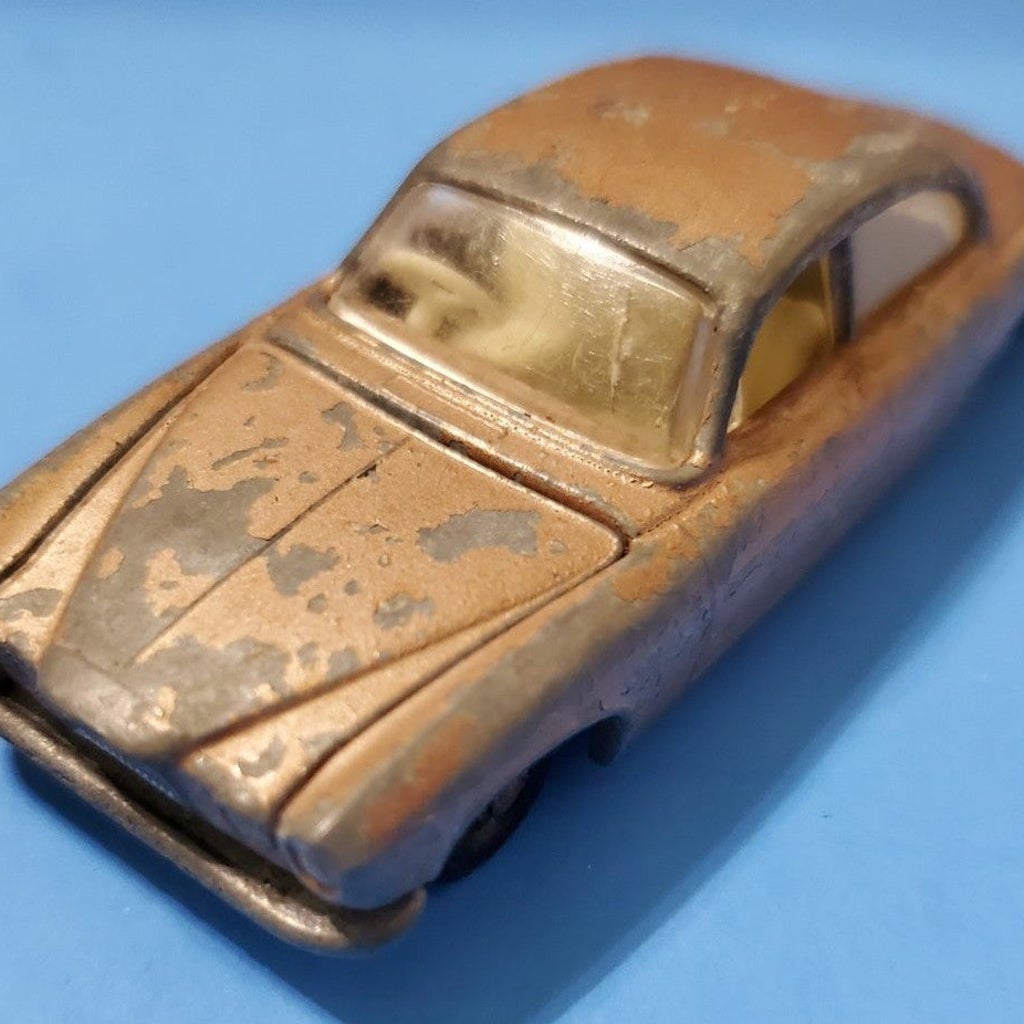My father died in October 2008, but my family “lost” him starting in 2001, when dementia beset him. It took a while to recognize the signs, especially because Dad was such a big kidder. He could look you in the eye and keep a straight face while he told you the most farfetched whopper, and he’d make you believe him.
For my 15th birthday, he gave me a watch with a Jaguar logo on the face and a sporty black steering wheel framing it. His friend the Jaguar dealer had gifted it to him. Dad told me that for my 16th birthday, he’d give me the car to go with it.

Mary Eleanor Pickle on her 96th birthday, Sept. 22, 2021, after getting her hair done. (Photo by Betsy Pickle)
Honestly, I wasn’t excited about getting a Jaguar. As a kid, I had a collection of Matchbox cars, and my tan-colored Jaguar was the homeliest of them all. I actually pitied it and had to make an extra effort not to exclude it from my games.
But as I headed toward 16, I somehow discovered that my little Matchbox didn’t represent what the rest of the world thought of Jaguar automobiles. That they were actually considered beautiful and alluring and powerful – when graced with the right color. So I began to look forward to the car my father said he was going to give me.
The day finally came, and I’m sure my parents gave me a present, but it wasn’t a car. I went to Dad, wearing my watch, and I tapped it and asked, “Dad, remember last year when you said for my 16th birthday, you’d give me the car to match?” He looked at me intensely with his beautiful blue eyes and said, “I’m bad to lie,” then chuckled.
To be fair, Dad was already keeping five people on the road – himself and Mom, plus my three older brothers. And none of them had fancy cars. I ended up with a Corvair – which had long before become extinct thanks to Ralph Nader (a name despised in my house) – and I loved it even though Dad had paid only $20 for it. (He knew it needed one part that was even less than $20 – he was pretty savvy with vehicles.)
He was around 78 when dementia poked its head up. He was watching a Lady Vols basketball game on TV, and Mom had taken a bathroom break toward the end. When she came back, he exclaimed, “You missed it! The coaches and players were shaking hands after the game, and Pat Summitt hauled back and slugged the other coach!”
Mom was amazed and kept watching for a replay of the event, but none came. The next day, she asked people who’d attended if they had witnessed the altercation, but no one had. She put it down to his sense of humor. Only later did we recognize it as a sign.
My favorite humorous dementia-related act of Dad’s was when several family members gathered for a meal at Rafferty’s in West Knoxville. We asked for to-go boxes for our leftovers, and before we rose from our seats we realized that Dad’s was bulging. We looked, and he had stuffed the honey bear in it. Dad didn’t even like honey! But he always liked free things.
One of the saddest things about Dad’s dementia was that he had had such an incredible mind. He was wonderful at math, English, history, current events, mechanics and remembering people’s names. His memory was amazing. He even remembered Mom’s stuff for her because she was always forgetful except when it came to organ and classical music.
Mom started her own journey with dementia some time ago. She began like most seniors – telling you the same thing over and over again, forgetting where she’d put the glasses that were on her own head, mixing up her children’s and grandchildren’s names.
At an April appointment, she didn’t recognize her doctor. A couple of weeks later, she didn’t know who I was. Most of the time, she thinks I’m “on staff” (at our house) and I’m pretty wonderful. She’s usually very sweet, and she still comes up with zingers and recognizes the old ones I lob at her.
But then there are bad days, which come more and more often now that she’s 96. Taking care of her is mentally and physically difficult, but I’d rather have that than the alternative.
It was pointed out to me Sunday night that not everyone has a close relationship with their parents or other members of their family, so it’s not as hurtful when they decline and ultimately pass away. I feel sad for those people.
I decided at the beginning of the pandemic that my most important job was to not let my mother catch Covid-19. It has been isolating, but I know I’m far from the only one in this position. I don’t think I could have taken the pain of being separated from Mom when nursing homes were in lockdown, as my Oregon cousins were.
Many friends have already gone through similar circumstances. Others are on the journey now with me, or will be soon. If that’s your situation, know this: You are not alone. You are doing the right thing. You are a blessing to your loved ones.
No matter how rare the patches of memory are, they are rays of sunshine that brighten my day. And on days that the clouds are solid, I call up my own memories and find joy in looking at my mother’s precious face. May you find that comfort as well.
Betsy Pickle is a veteran reporter and editor who occasionally likes to share her opinions with KnoxTNToday readers.

